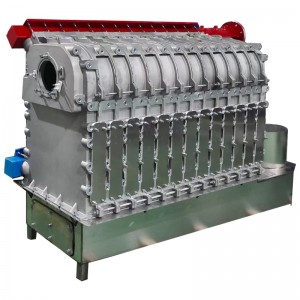- Afrikaans
- Albanian
- Amharic
- Arabic
- Armenian
- Azerbaijani
- Basque
- Belarusian
- Bengali
- Bosnian
- Bulgarian
- Catalan
- Cebuano
- China
- China (Taiwan)
- Corsican
- Croatian
- Czech
- Danish
- Dutch
- English
- Esperanto
- Estonian
- Finnish
- French
- Frisian
- Galician
- Georgian
- German
- Greek
- Gujarati
- Haitian Creole
- hausa
- hawaiian
- Hebrew
- Hindi
- Miao
- Hungarian
- Icelandic
- igbo
- Indonesian
- irish
- Italian
- Japanese
- Javanese
- Kannada
- kazakh
- Khmer
- Rwandese
- Korean
- Kurdish
- Kyrgyz
- Lao
- Latin
- Latvian
- Lithuanian
- Luxembourgish
- Macedonian
- Malgashi
- Malay
- Malayalam
- Maltese
- Maori
- Marathi
- Mongolian
- Myanmar
- Nepali
- Norwegian
- Norwegian
- Occitan
- Pashto
- Persian
- Polish
- Portuguese
- Punjabi
- Romanian
- Russian
- Samoan
- Scottish Gaelic
- Serbian
- Sesotho
- Shona
- Sindhi
- Sinhala
- Slovak
- Slovenian
- Somali
- Spanish
- Sundanese
- Swahili
- Swedish
- Tagalog
- Tajik
- Tamil
- Tatar
- Telugu
- Thai
- Turkish
- Turkmen
- Ukrainian
- Urdu
- Uighur
- Uzbek
- Vietnamese
- Welsh
- Bantu
- Yiddish
- Yoruba
- Zulu
Jul . 29, 2024 02:44 Back to list
Gas-Fired Boilers for Commercial Heating Applications Designed and Manufactured in Our Dedicated Facility
The Future of Commercial Heating Gas-Fired Boiler Technology
In the realm of commercial heating solutions, gas-fired boilers have stood the test of time, proving to be efficient and reliable choices for various types of businesses. As industries continue to evolve, so too does the technology that powers our heating systems. Gas-fired boilers, often found in factories and large buildings, are increasingly favored for their efficiency, adaptability, and cost-effectiveness.
Understanding Gas-Fired Boilers
Gas-fired boilers utilize natural gas or propane to produce hot water or steam for heating. They operate by burning gas in a combustion chamber, which generates heat that is transferred to water circulating through pipes. This heated water or steam can then be used for space heating, process heating in industrial applications, or even for domestic hot water needs.
One of the primary advantages of gas-fired boilers is their high efficiency ratings, often exceeding 90%. Modern boilers are designed to maximize heat recovery, ensuring that more energy from the fuel is used effectively. This results not only in lower utility bills for businesses but also in reduced greenhouse gas emissions, aligning with many organizations' sustainability initiatives.
The Role of Gas-Fired Boiler Factories
The production of gas-fired boilers involves intricate engineering and manufacturing processes. Factories specializing in these systems are equipped with advanced technology and skilled labor to ensure high-quality output. The design and manufacturing stages consider a variety of factors, including energy efficiency, safety, and compliance with environmental regulations.
commercial heating gas fired boiler factory

Manufacturers are now investing in research and development to innovate and enhance their products. These advancements include incorporating smart technology, such as IoT (Internet of Things) features that enable remote monitoring and management of boiler operations. Such systems allow facility managers to optimize performance and reduce downtime by predicting maintenance needs before problems occur.
Environmental Considerations
As global efforts to combat climate change intensify, the push for cleaner energy solutions becomes more urgent. While gas-fired boilers are generally cleaner than coal or oil alternatives, reliance on fossil fuels raises concerns about long-term sustainability. Consequently, manufacturers are exploring hybrid solutions that combine gas with renewable energy sources, such as solar or biomass. This not only reduces carbon footprints but also provides a more resilient energy system in the face of fluctuating fuel prices and availability.
Moreover, many countries are implementing stricter regulations to encourage the transition to low-emission technologies. As a result, gas-fired boiler factories are adapting their production processes and product lines to meet these new standards. The trend is moving towards the development of condensing boilers, which capture and reuse exhaust gases, making them even more efficient.
The Future is Bright
The future of commercial heating with gas-fired boilers looks promising. As technology progresses and environmental regulations evolve, these systems will become more efficient and sustainable. Businesses that invest in modern gas-fired boiler systems can expect not only cost savings but also enhanced operational reliability.
In summary, gas-fired boiler factories play a crucial role in the commercial heating landscape. The ongoing advancements in technology and commitment to environmental stewardship will ensure that gas-fired boilers remain a key player in meeting the heating needs of businesses worldwide. The collaboration between manufacturers, engineers, and consumers will drive innovation and pave the way for a cleaner, more efficient future in commercial heating solutions.
-
Premium Cast Iron Water Main Pipe: Durable, Corrosion-Resistant
NewsAug.03,2025
-
Durable Cast Iron Water Mains | AI-Optimized Systems
NewsAug.02,2025
-
High-Efficiency Propane Boiler for Baseboard Heat | Save Energy
NewsAug.01,2025
-
Premium Source Suppliers for Various Gray Iron Castings
NewsJul.31,2025
-
Durable Cast Iron Water Main Pipes | Long-Lasting
NewsJul.31,2025
-
High-Quality Cast Iron Water Main Pipe for Durable Infrastructure
NewsJul.30,2025


